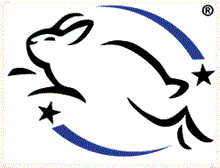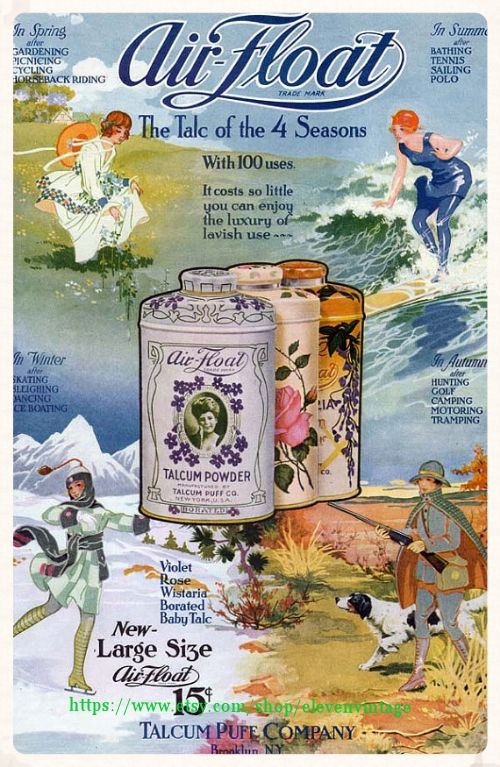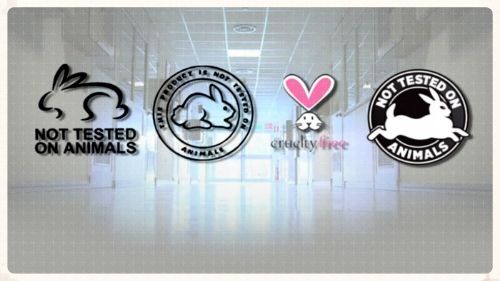Cruelty-free beauty is not a new concept. Most of you already have seen the horrific images of rabbits with oozing sores, or rats that have been blinded with chemicals. But what's the real deal with cruelty-free products? First, some truth about labeling and what truly constitutes "cruelty-free":
Cruelty-Free - What It Is and Isn't:
The beauty industry cannot really decide what constitutes a truly cruelty-free product. However, organizations such as PETA, the Humane Society of the United States and the Leaping Bunny Program adopted by the Coalition for Consumer Information on Cosmetics (CCIC) agree that cruelty-free products are not tested on animals. This generally includes not only testing of the finished product, but testing of any of the products ingredients.
- Cruelty-free does not mean that the product is vegan: containing no animal products of any kind including eggs and dairy.
- Cruelty-free does not mean a product is organic: generally meaning products that were grown or produced without the use of chemical fertilizers, pesticides, antibiotics or growth hormones.
- Cruelty-free does not mean the product is fair trade: an organized social movement to better the lives of farmers by paying them fairly for their goods while encouraging sustainable farming practices.
Cruelty-Free and the Law:
Cruelty-free is a label that can mean less than - or greater than - standards are applied. Because there is no legal standard in the U.S. to define "cruelty-free", companies can use the label to mean just about anything: the label can imply that the final product has not been tested on animals, but certain ingredients in the product were. It can mean that the manufacturer did not test on animals, but the supplier did the testing instead. It can also mean that the manufacturer relied on tests done in foreign countries which laws are not applicable here in the U.S. Sadly, because animal testing is not prohibited in the U.S., the law is vague where the "cruelty-free" label is concerned.
80 countries still allow animal testing today, according to the Humane Society of the United States. The U.S. does not require animal testing, but does not ban it, either. Some countries like China and Brazil do require animal testing. In 2014, China determined that products being imported into the country - U.S. companies are included - must be tested on animals. Therefore, although a company here in the U.S. may claim that their products are not tested on animals, if said company is selling in China, then that company is not cruelty-free.
How to Buy:
It's surprising to most consumers how confusing, not to mention unclear, cruelty-free shopping really is. So what's a consumer to do? First of all, get familiar with the organizations and projects that are the most stringent when it comes to animal safety and welfare.

- The Leaping Bunny Program ensures that products with the leaping bunny label have not had any new animal testing in any phase of development, from the suppliers to the manufacturers. The CCIC requires all companies utilizing their label to undergo a free analysis that ensures there is no animal testing involved and that the product is up to snuff. When you see the leaping bunny logo (directly above) you can feel pretty secure knowing that you're getting a cruelty-free product.
- PETA provides an up-to-date list of companies and products that are cruelty-free. Think of it as a "Google" for cruelty-free products. You simply plug in the name of the company, or you can view lists of companies that do engage in animal testing, and even view companies that are working to change regulations to better animal welfare. Click here to check it out.
- On the go? If you need a quick guide while shopping, there's an app for that. Cruelty-Free by Symbiotic Software is the CCIC's app that lists over 200 cruelty-free U.S. and Canadian companies. Animal-Free is an app designed to help you determine if there are hidden animal ingredients in products. This app is particularly helpful if you're looking for vegan products. Choose Cruelty Free is an Android powered app that offers lists of cruelty-free and vegan products. Lastly, the PETA app is everything animal friendly. You can view news updates, donate, and of course, find vegan and cruelty-free products galore.
At the end of the day, one of the best things you can do is research a company you purchase from regularly. We search the internet all day anyhow, why not check up on what you're putting on and into your body? Find out what's being said about the company in the news. Check the company's mission statement - is it pro-animal rights? You may discover other projects that the company engages in that are important to you, such as sustainable farming or ending human trafficking (yes,
The Body Shop does all that).
Still have questions? Feel free to e-mail me: benevolentbeautyblog@gmail.com


